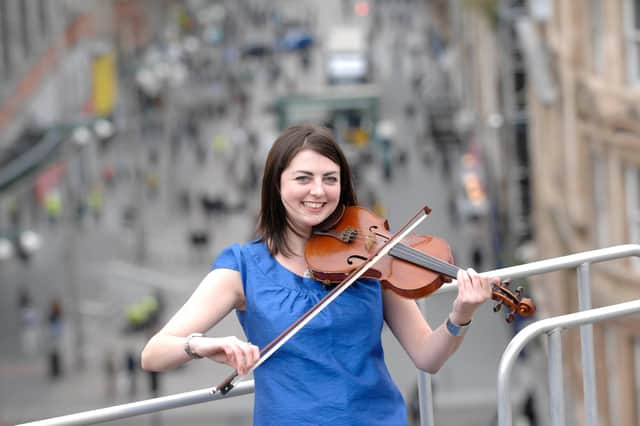School of Scottish Studies to mark 70th birthday with EIF shows


As the Edinburgh International Festival returns next month, in a tentative format of socially distanced outdoor events along with digital streaming, it will include a series of traditional music concerts at the Old College Quad, featuring such contemporary Scottish folk luminaries as Duncan Chisholm, Karine Polwart and Aidan O’Rourke, as well as bands such as Dàimh and the Kinnaris Quintet. Two concerts, however, focus on what might be considered the touchstone for so much of the folk revival, celebrating the 70th anniversary of Edinburgh University’s School of Scottish Studies and its archives of traditional song, story and related material, which have been described as “a cultural jewel box”.
Sunday 8 August will see two concerts marking the anniversary with cross-generational line-ups. A Folk Song Sharing features the veteran Caithness singer, songwriter and storyteller Nancy Nicolson, Gaelic singer Arthur Cormack OBE and a rising young singer-songwriter in both Scots and Gaelic, Josie Duncan. The Living Archive, meanwhile, sees another young voice, Kirsty Law, joined by harpist Mary MacMaster, as well as multi-instrumentalist and current traditional artist in residence at the school Mike Vass and stepdancer Sophie Stephenson. Both concerts will be presented by Gaelic singer and broadcaster Mary Ann Kennedy.
Advertisement
Hide AdAdvertisement
Hide AdThe shows will spotlight “not just ‘Here’s a polished performance’ but also ‘Here’s what this song means to me,’” explains their curator, Lori Watson, lecturer in ethnology at the university’s Department of Celtic and Scottish Studies, home of the School and its archives, who is a respected Border singer and fiddler in her own right.
“The afternoon concert will be mostly song – although Nancy Nicolson also does storytelling – and all three have been invited to focus on some of the most meaningful songs in their lives,” adds Watson. “I’m also hoping that Josie might share perhaps one of her own original songs and tell us about the writing process. I’m really keen for it to be an intimate sharing: that’s something everyone’s craving just now in terms of a live event.”
The Living Archive will have the musicians reflecting on their connections with the archive, as well featuring as some new collaborations between them. “I’m delighted that Mary McMaster is part of it, because, obviously, she has a strong connection with the school, as one of the first students on its Celtic and Scottish Studies programme. Also she has a clear connection to tradition but has been quite innovative with it, and I love that.”
Watson is also looking forward to the set from Sophie Stephenson (recently seen teaching step dancing to former ballerina and Strictly judge Darcey Bussell): “Sophie has been working on some really interesting experimental forms of percussive art.”
Seventy years on, Watson believes that, as the school and its archives move forward into a new era, there will be an increased emphasis on connecting with communities through the traditional arts, not least by further utilising internet technology – “and as soon as it’s safe to do so, the archives will be re-opening to the public, four days a week”.
A major anniversary symposium is being planned for the autumn. In the meantime, an important current thread of activity is Queering the Archives, “which is exploring any LGBTQ+ voices – and silences – within them, what’s not represented and how we can address that for the future.”
The school’s website also engages with the public through its “70 Objects” blog, which presents sound, photographic or manuscript items from the archives and invites personal responses.
Advertisement
Hide AdAdvertisement
Hide Ad“People are surprised at just how relatable the archive recordings are,” says Watson. ”These are the voices of real people with real lives, sharing material that had been handed down to them, some of it reaching back to the 1800s though, of course, some of these songs and tunes go back much, much further.
“It is a community of voices and of knowledge and it’s there to be accessed and to be treated with respect.”
For further details see www.eif.co.uk and https://libraryblogs.is.ed.ac.uk/sssa
A message from the Editor:
Thank you for reading this article. We're more reliant on your support than ever as the shift in consumer habits brought about by coronavirus impacts our advertisers.
If you haven't already, please consider supporting our trusted, fact-checked journalism by taking out a digital subscription at https://www.scotsman.com/subscriptions